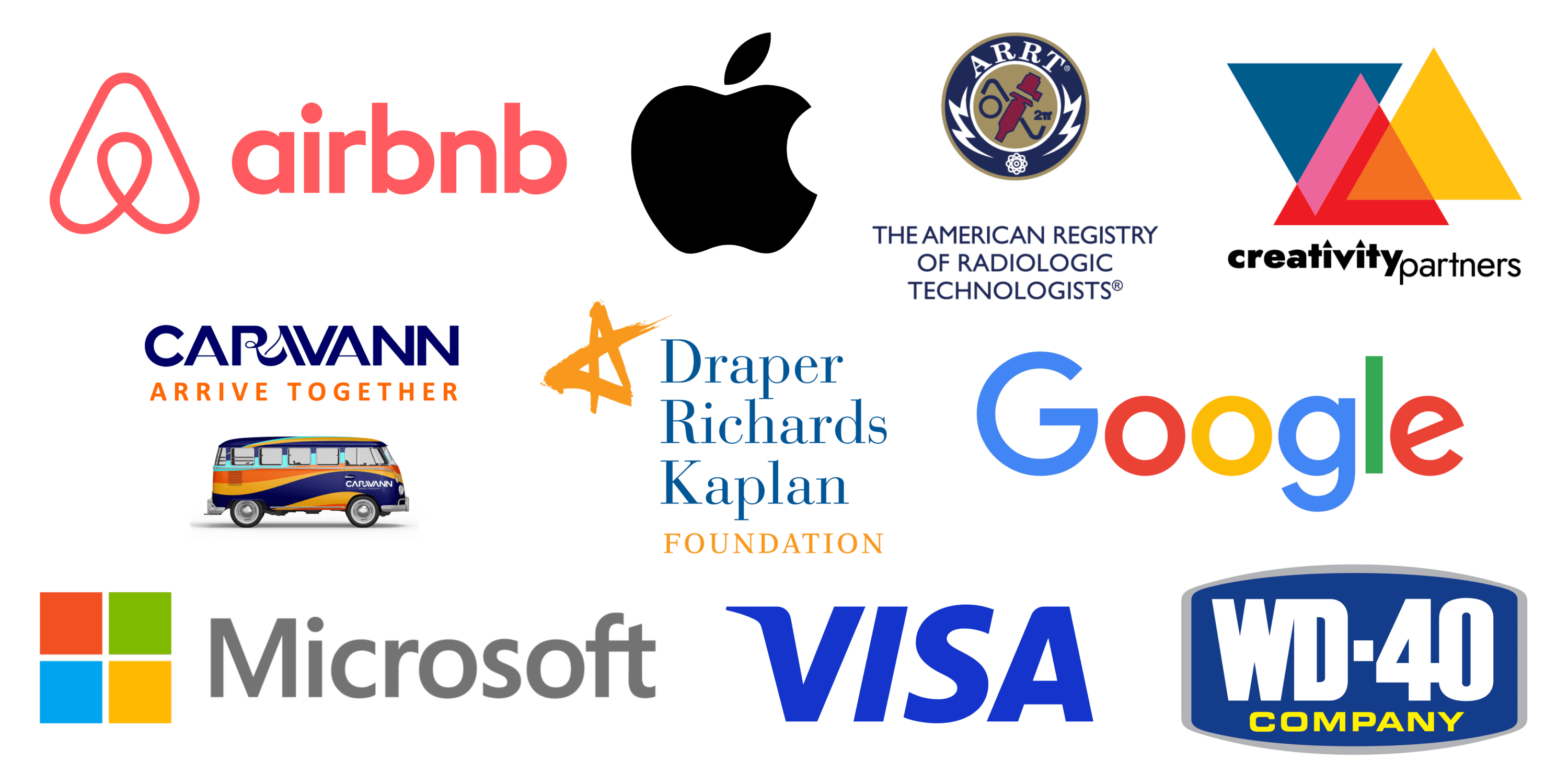Conference Summary
Over 250 business leaders and academic researchers convened at the Berkeley Haas School of Business on January 9-10, 2024 for the sold-out 6th Annual Culture Connect Conference. They discussed the complexities of and shared insights on building high-performing, innovative, and inclusive cultures in the age of generative AI and hybrid work.
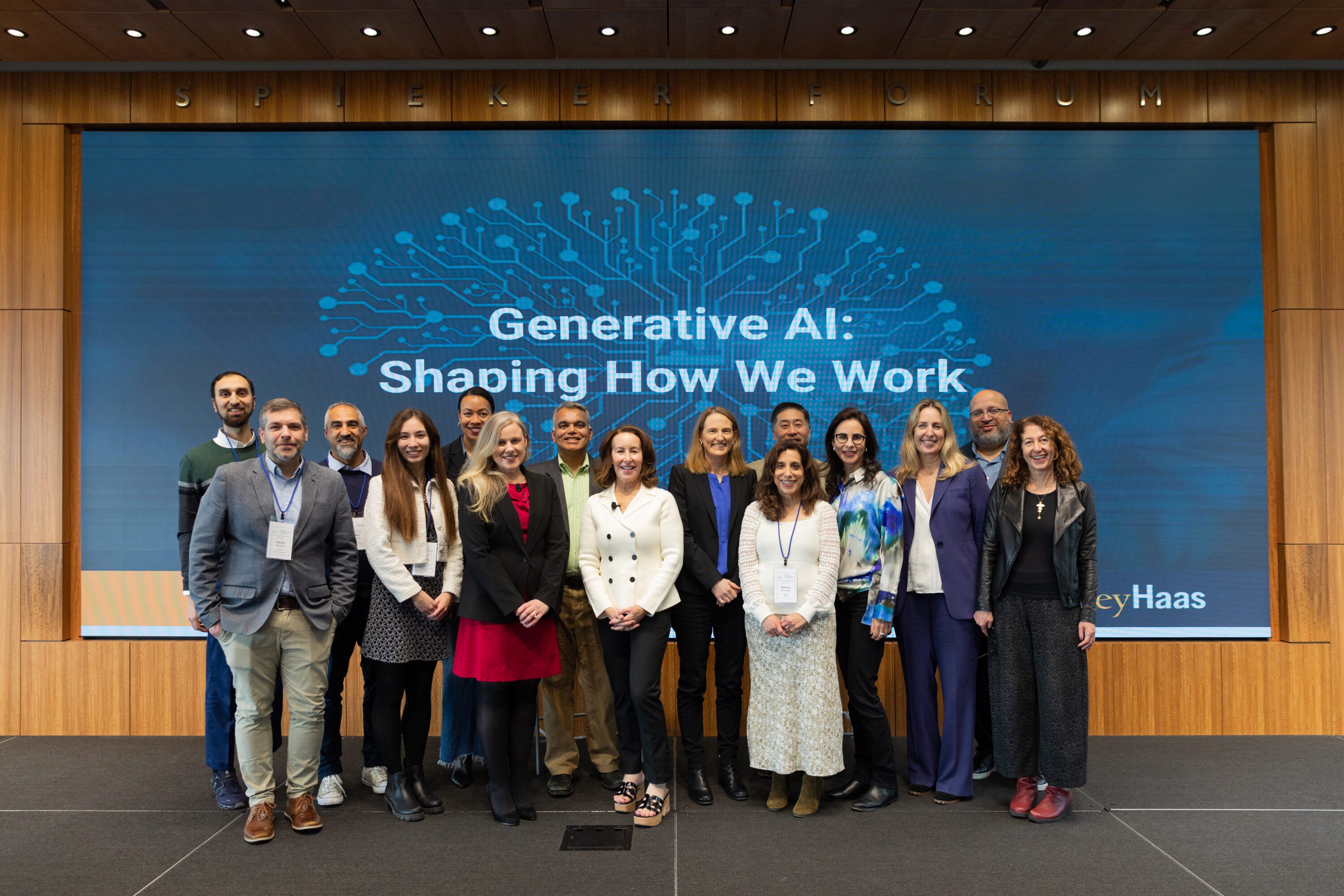
Corporate Conference
The corporate conference brought together industry and academic perspectives on three key areas: 1) strategies for improving cultural cohesion, employee engagement, and productivity in hybrid work models, 2) creating effective DEIB policies for workplace inclusivity, and 3) the impact of AI on the workplace. The conference featured talks and fireside chats with top leaders from HubSpot, Humu, IBM, LinkedIn, Lyft, NetApp, and Pixar as well as presentations by renowned academic experts from Berkeley Haas, Harvard, MIT Sloan, Northwestern Kellogg, Stanford, Warwick, and Wharton. The event also included interactive workshops, discussions, and networking sessions.
For the first time, the conference was open to the broader public, and attendees included over 100 academics and 150 industry leaders from 70 companies across diverse sectors like healthcare, biopharmaceuticals, media, tech, financial services, film, government, and nonprofits.
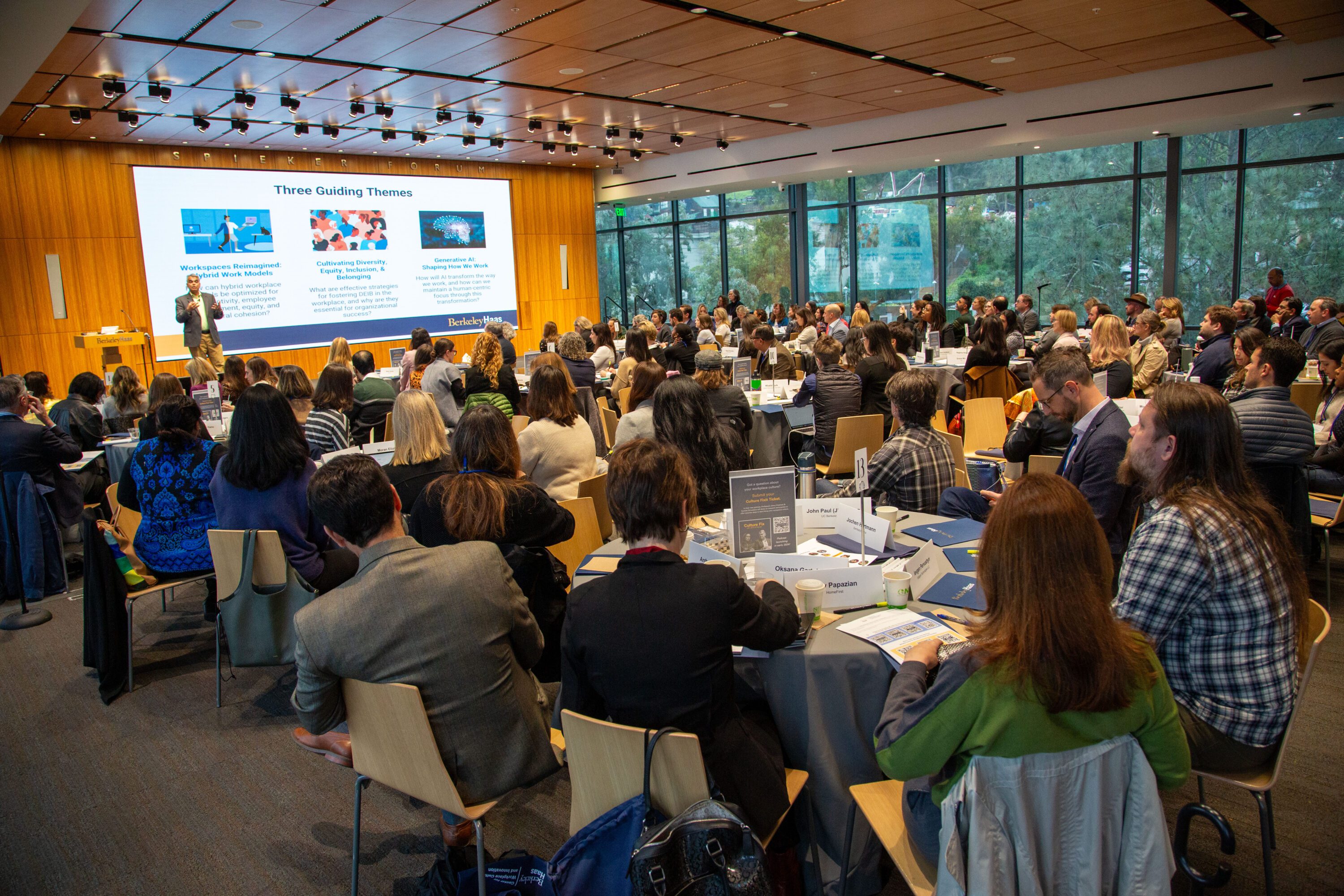
Future of Work and Hybrid Workplace Models
HubSpot CEO Yamini Rangan began the day with a discussion of HubSpot’s strategy for refining and updating their culture as a firm consistently ranked as one of the best places to work in the country.
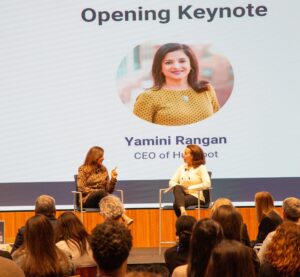
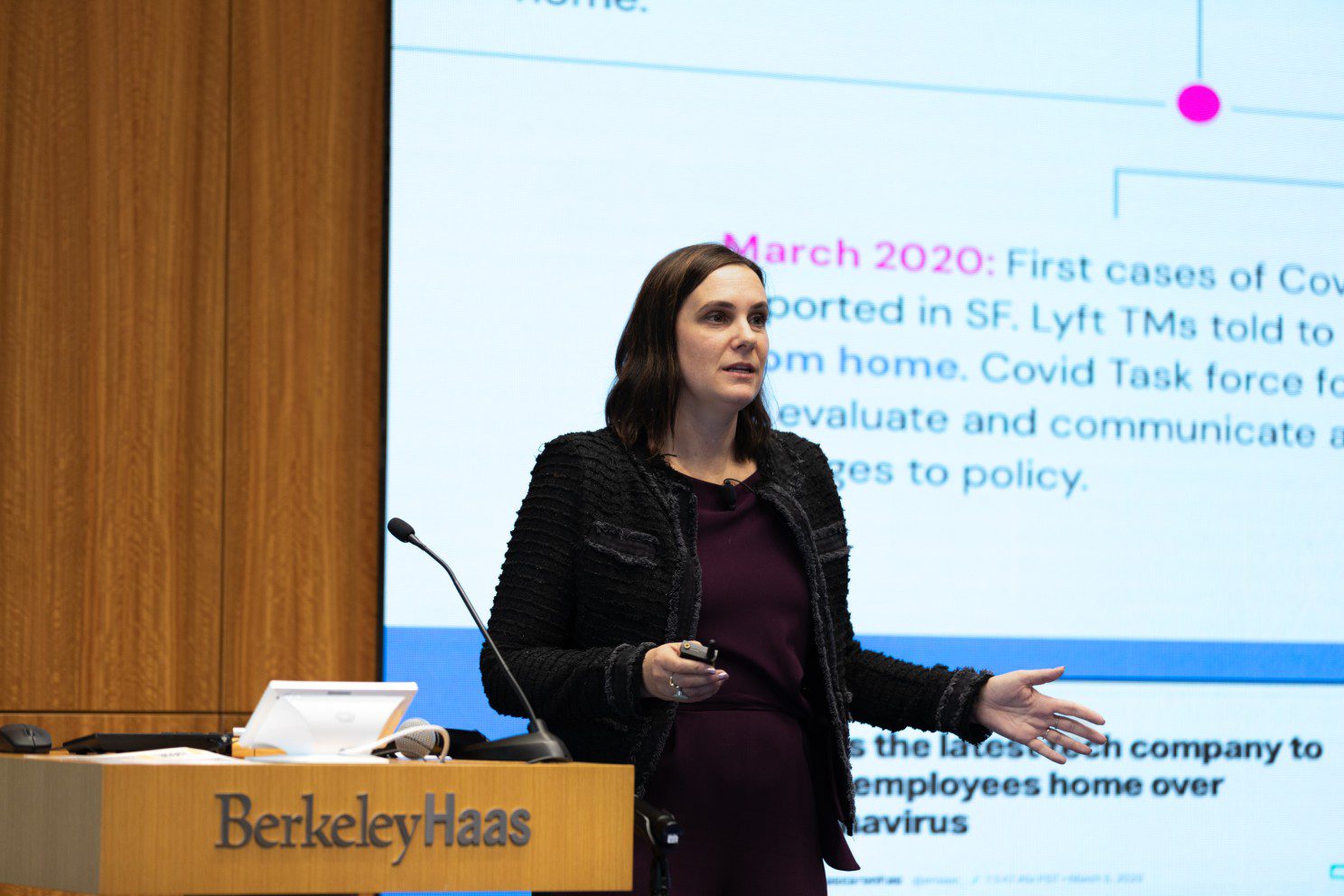
Professor Nick Bloom from Stanford University and Professor Martine Haas from the Wharton School of Business added to these insights respectively by analyzing real world data to explore how different hybrid work models are being implemented across different industries and through sharing a strategic framework to assess hybrid workplace cultures. Lyft President Kristin Sverchek expanded on this discussion by detailing Lyft’s innovative approach to hybrid work and sharing effective industry practices and lessons learned. Humu founder Laszlo Bock closed the segment in a thoughtful fireside chat with Professor Sameer Srivastava on how to help employees find meaning and connection in hybrid work models.
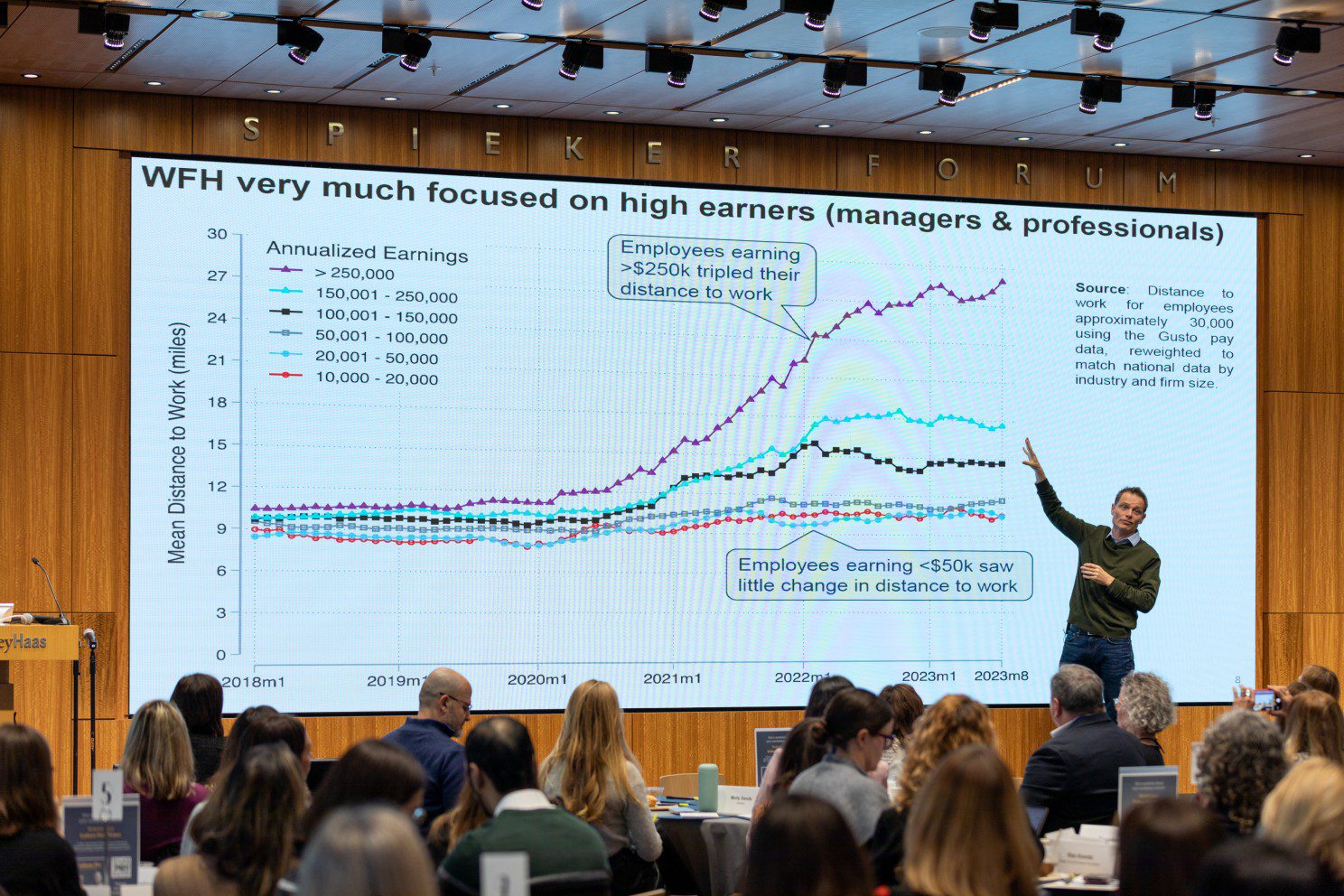
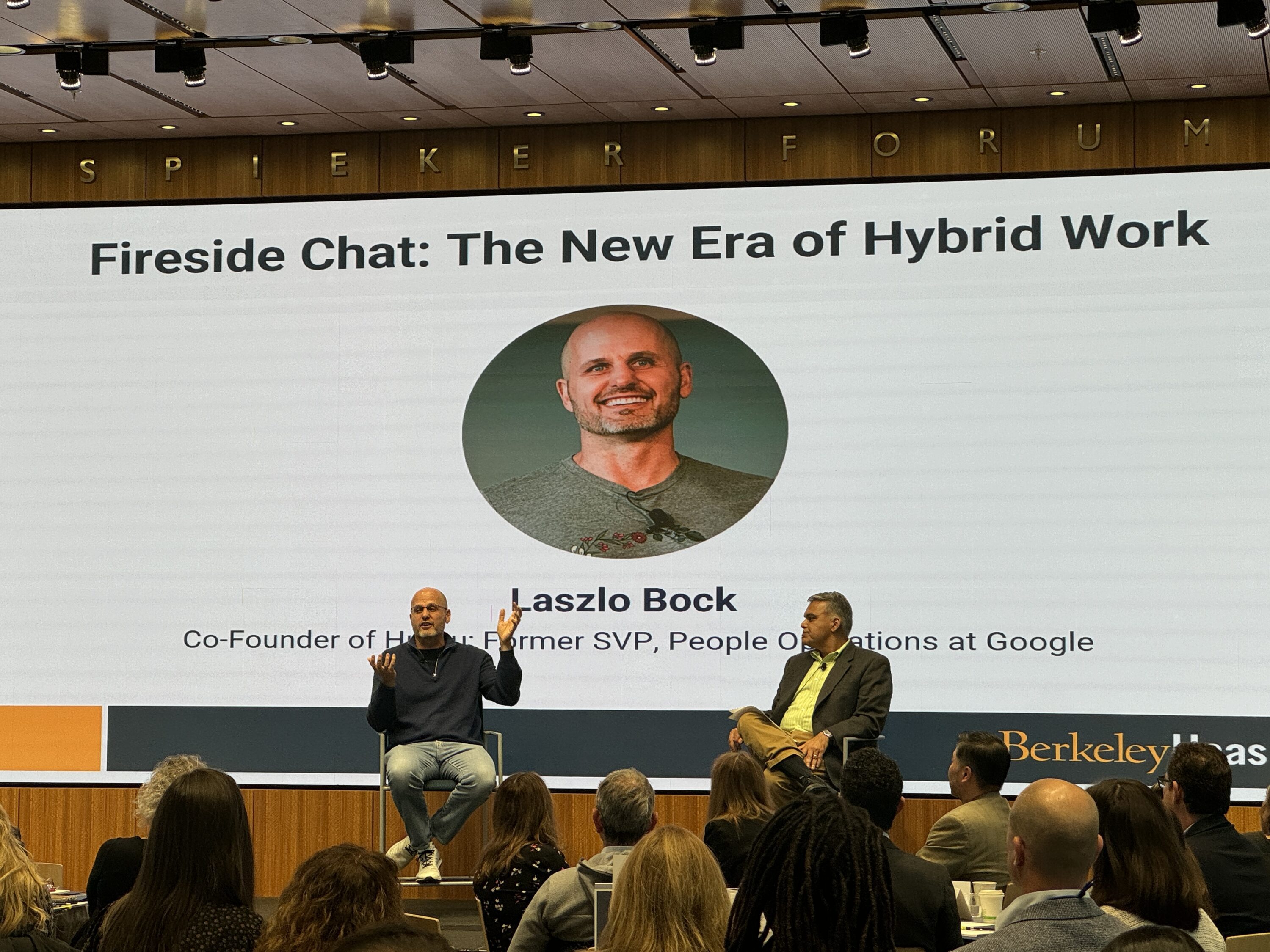
DEIB Challenges and Strategies
The DEIB section began with a roundtable discussion moderated by Kia Afcari from Caravann Consulting. The roundtable featured two academic and two industry experts on the topic. Reema Batnagar, Vice President of People at Pixar, underscored the significance of leveraging personal stories to foster inclusion and belonging within the workplace. Dave Kim, NetApp’s Chief DEI Officer, addressed the critical need for corporate leaders to sustain their DEI initiatives in the face of recent challenges. David Pedulla, a Professor at Harvard, shed light on the ongoing prevalence of discrimination in the labor market across multiple dimensions. Sa-kiera Hudson, an Assistant Professor at Berkeley Haas, presented recent research underscoring the crucial role of intersectionality. Her findings highlighted how the interplay between gender and race can either intensify or mitigate biases, emphasizing the complexity of identity in workplace dynamics.
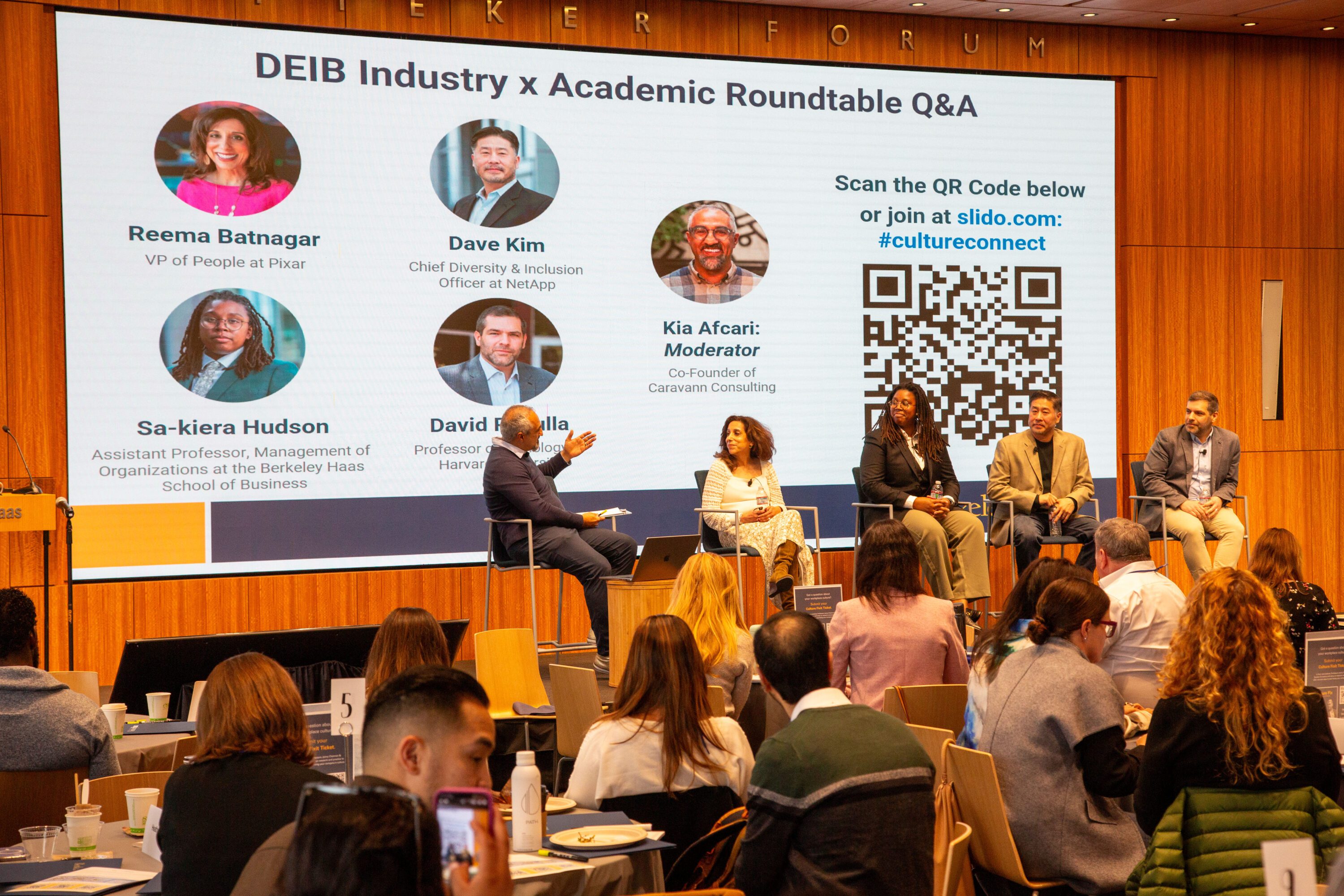
After this discussion, participants had an opportunity to engage in a workshop on creating belonging through storytelling led by Jamie Woolf and Dr Christopher Bell from Creativity Partners.
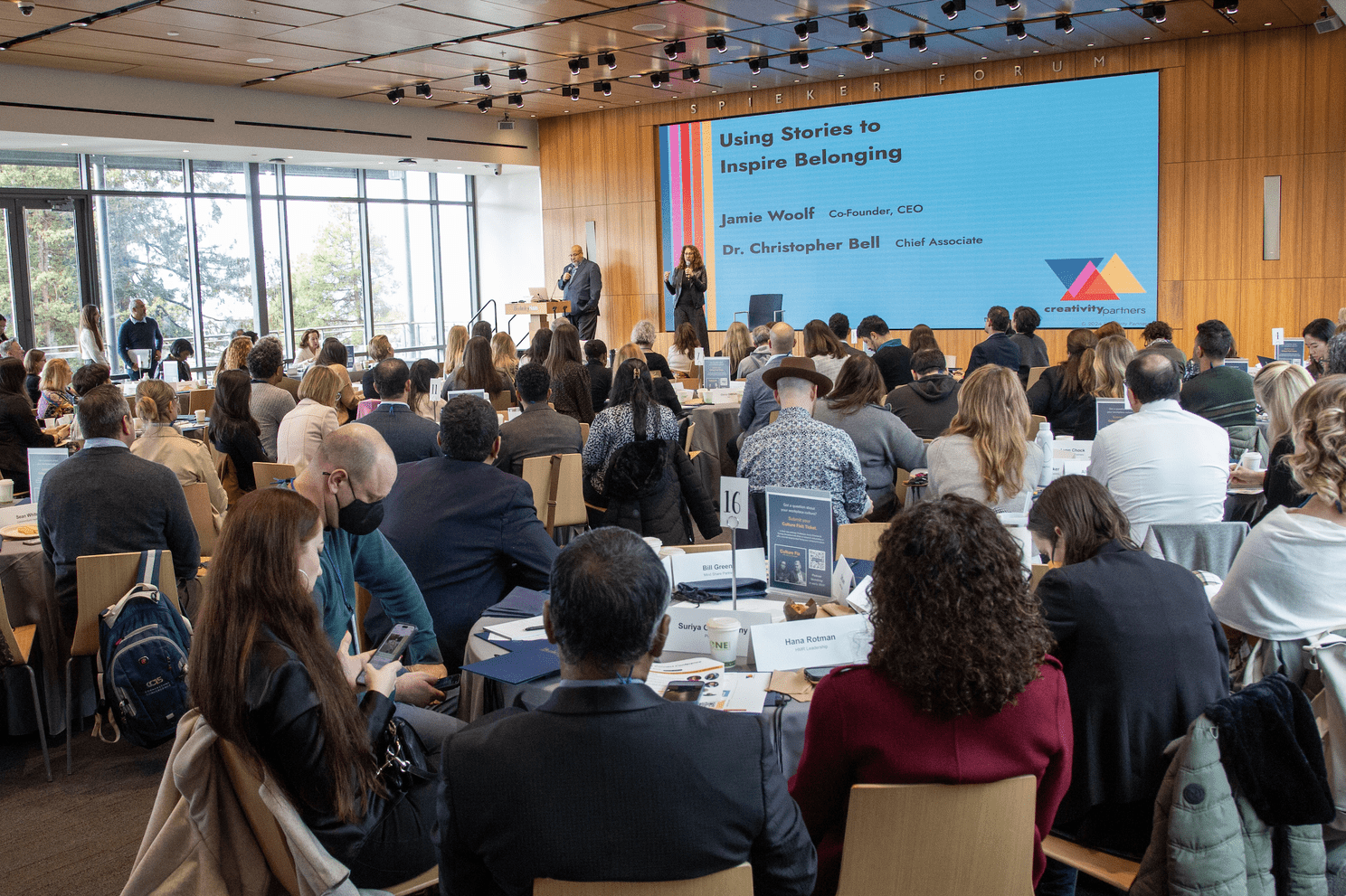
AI's Impact on the Workplace
The day’s final segment focused on generative AI in the workplace. In a fascinating conversation with Professor Jennifer Chatman, IBM Chief HR Officer Nickle LaMoreaux discussed how AI has transformed HR at IBM.
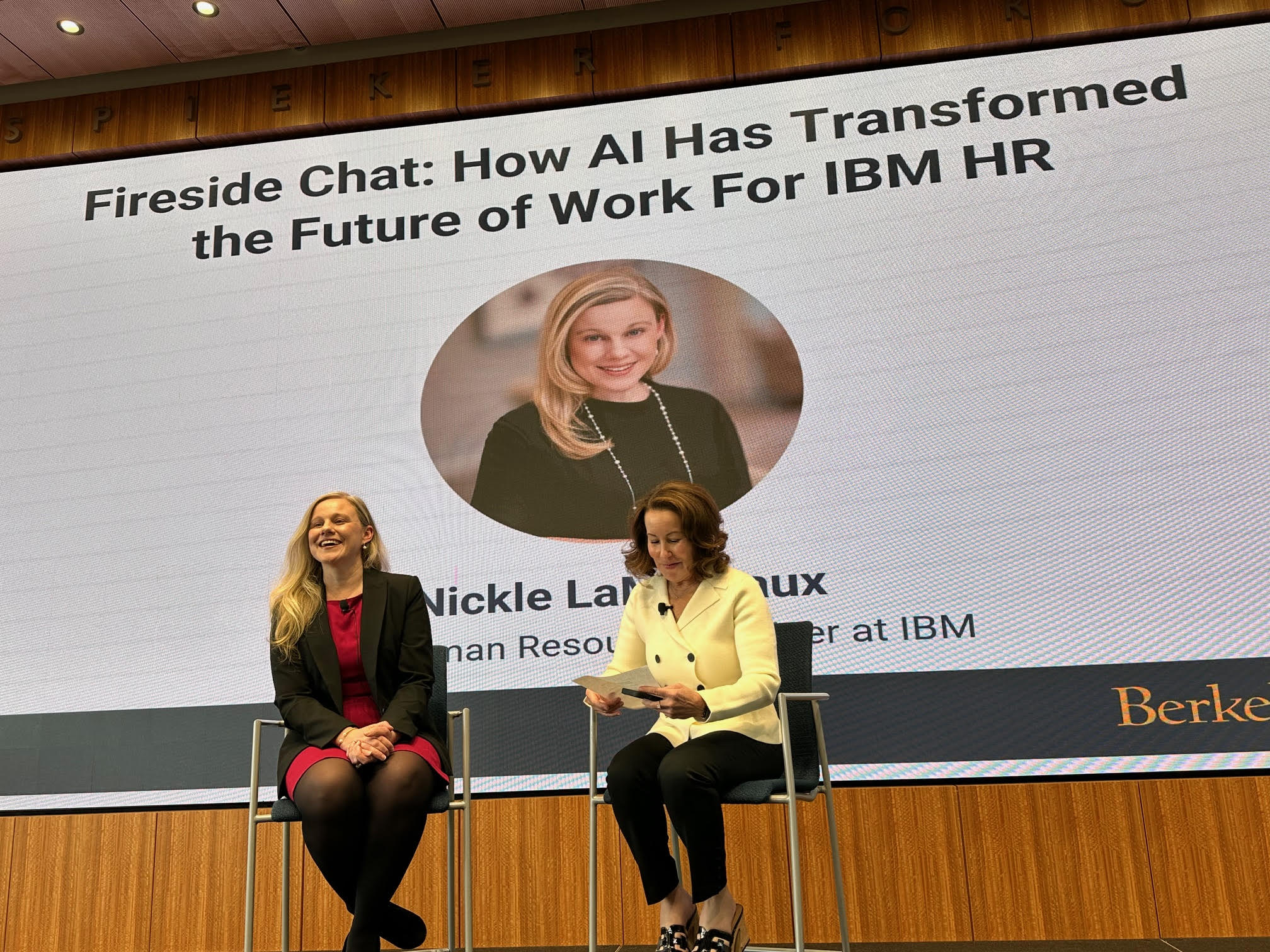
Professors Kate Kellogg of MIT Sloan and Hila Lifschitz-Assif of University of Warwick shared the findings of experimental research conducted in collaboration with Boston Consulting Group on AI’s varying impact on innovation and productivity in the workplace.
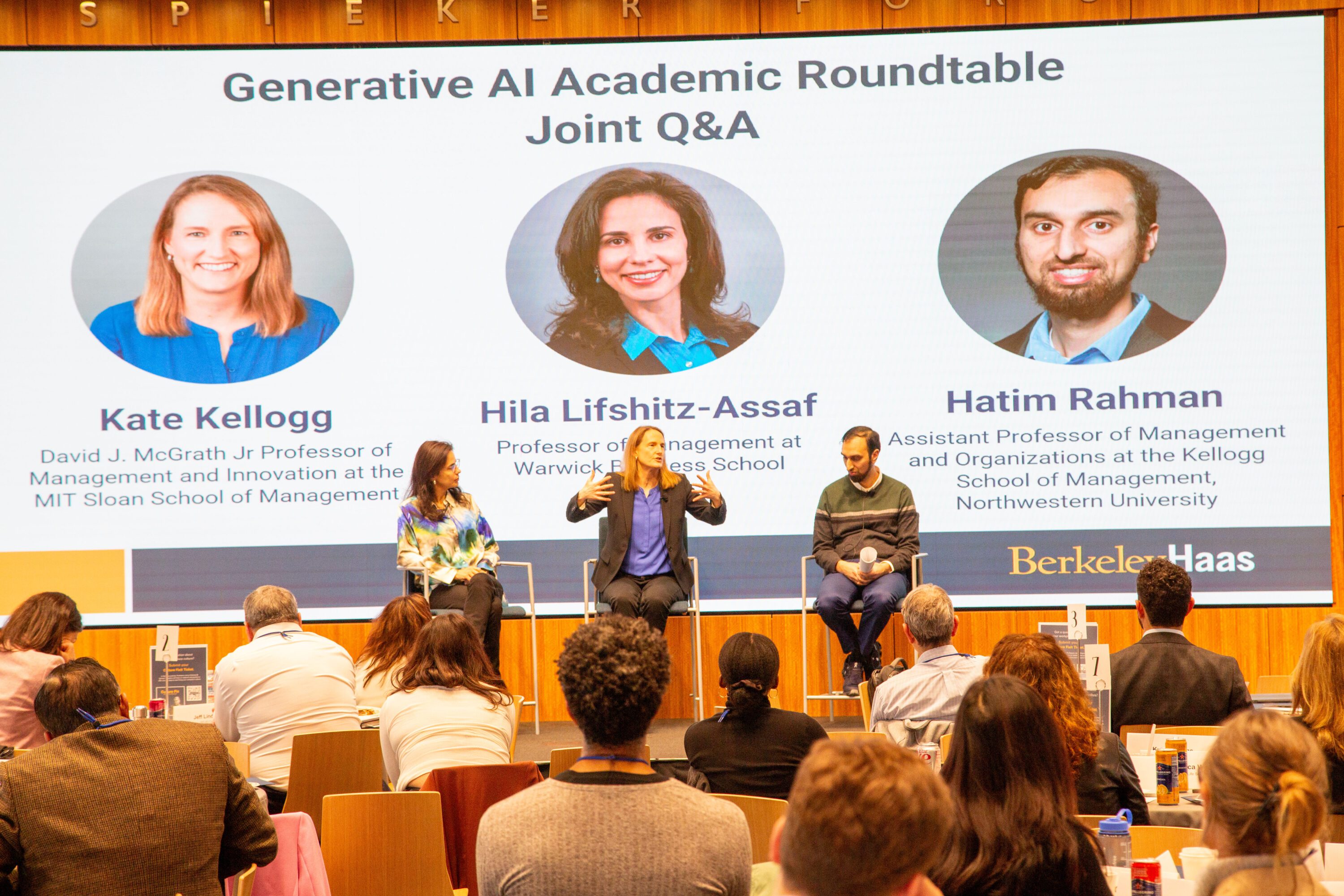
Assistant Professor Hatim Rahman of Northwestern Kellogg extended this discussion through his research on the importance of technological certification in the labor market. Professor Sameer Srivastava ended the segment with an insightful fireside chat with LinkedIn Chief People Officer, Teuila Hanson, on how to prioritize and maintain a people-centric approach throughout the adoption of AI in the workplace.
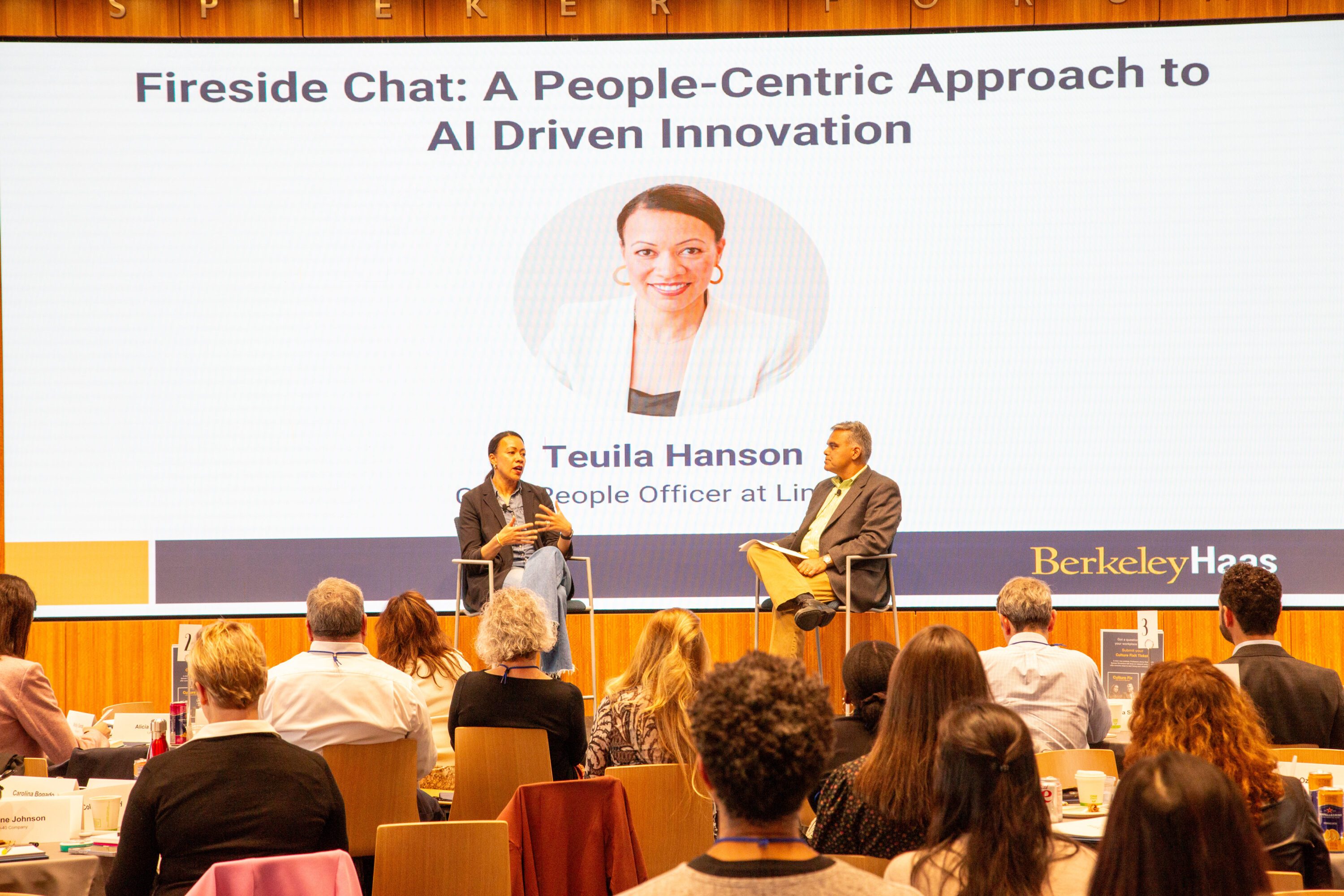
Academic Conference
The academic conference explored the latest in organizational culture research through presentations from 34 scholars from around the world who examined culture through the lens of sociology, social psychology, and economics. Keynote talks included Paul Ingram of Columbia on how people tend to conceal social class identities; Doug Guilbeault of Berkeley Haas on how gender biases tend to be stronger and more persistent in online images than in text; Anita Williams Woolley of Carnegie Mellon on how the drivers of collective intelligence in teams differ from individual intelligence; and Leo Bursztyn of the University of Chicago on how to create social change by correcting misperceptions about prevailing norms. In addition, former Berkeley Haas Dean Rich Lyons, Associate Vice Chancellor and Chief Innovation & Entrepreneurship Officer at UC Berkeley, and Laura Hassner, executive director at UC Berkeley Innovation & Entrepreneurship, reported on the success of the UC Berkeley Changemaker program.
View: Agenda
Edgar Schein Best Student Paper Award
The Edgar Schein Best Student Paper Award encourages the next generation of scholars and encourages work that builds connections across disciplines, is theoretically rich, and empirically rigorous. Around 70 abstracts were submitted to the Conference and rigorously reviewed by our academic board who nominated 17 papers.![]()
Congratulations to Yingjian Liang of Indiana University who took first place.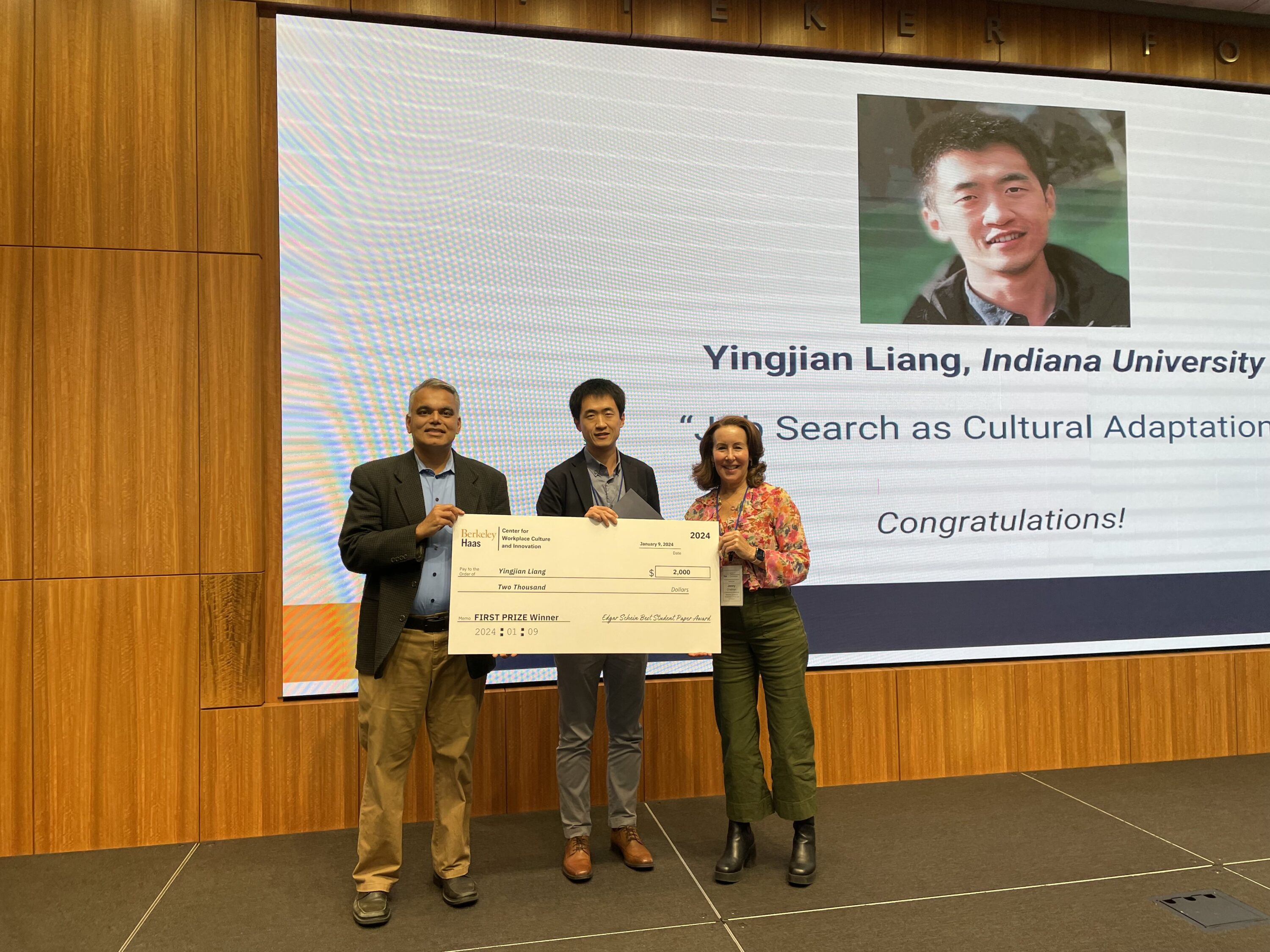
As well as Danyang Li of UC Berkeley who took second.
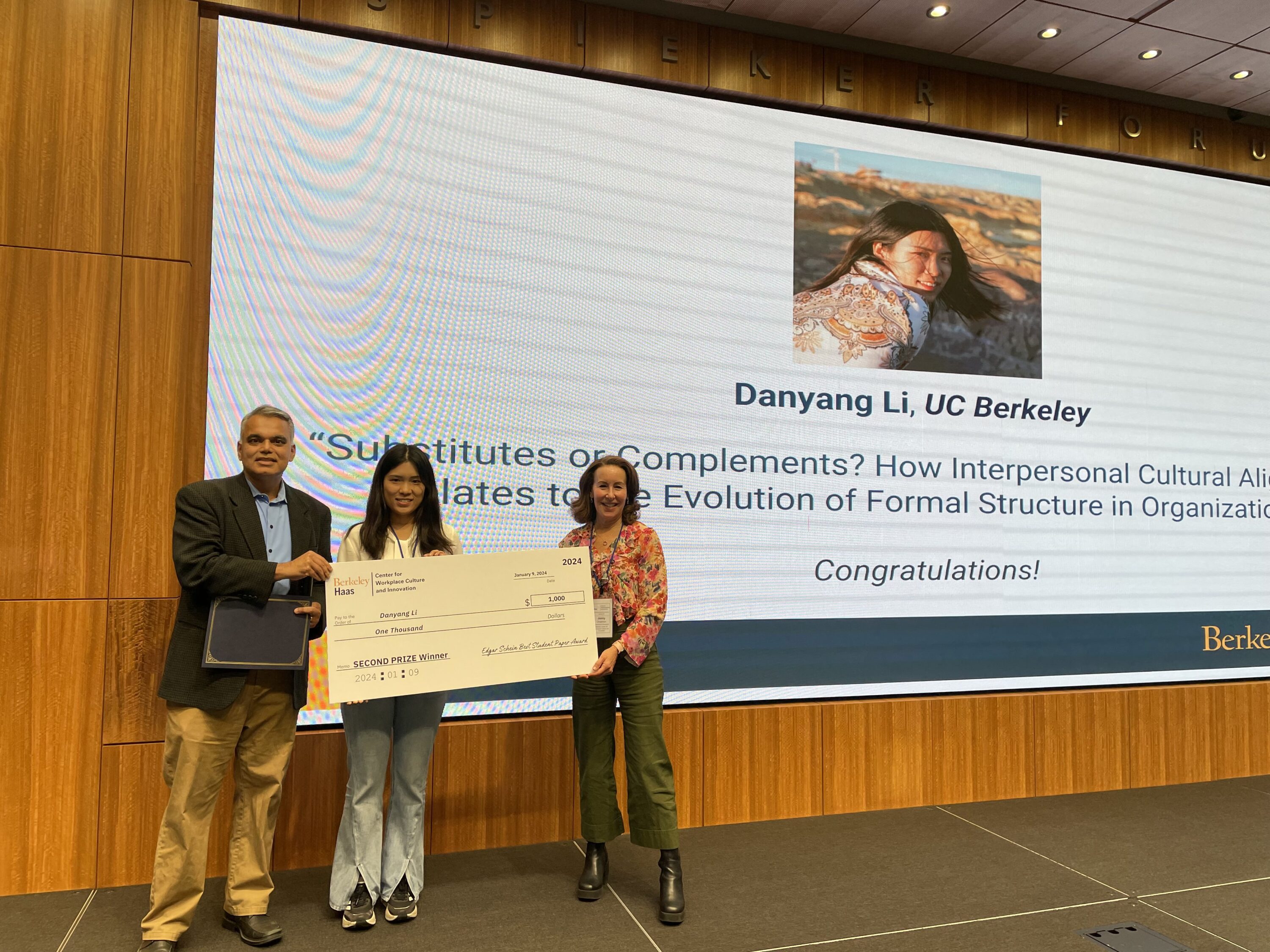
Feedback from Attendees
“Loved this format – so much rich content; loved academic/corporate mix; really strong and credible presenters; loved the storytelling wrap-up”
“Excellent event. Best I’ve been to since one of the early TED conferences in Monterey (circa 1998).”
“It was so useful to see both the research and data as well as real examples of the workplace from big companies.”
“Keep having amazing speakers! Great across the board.”
Thank You To...
